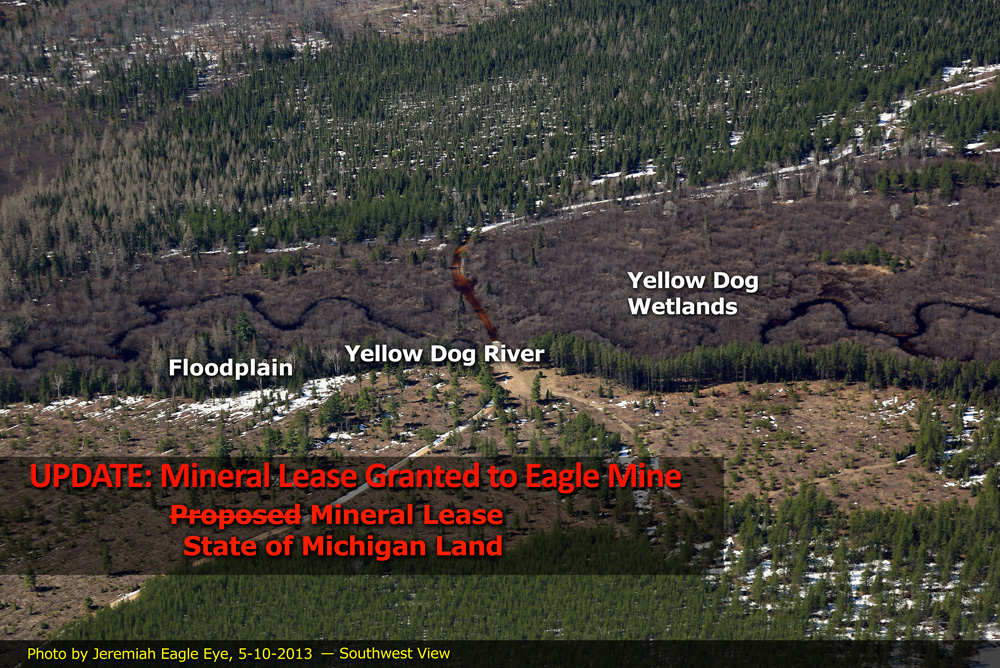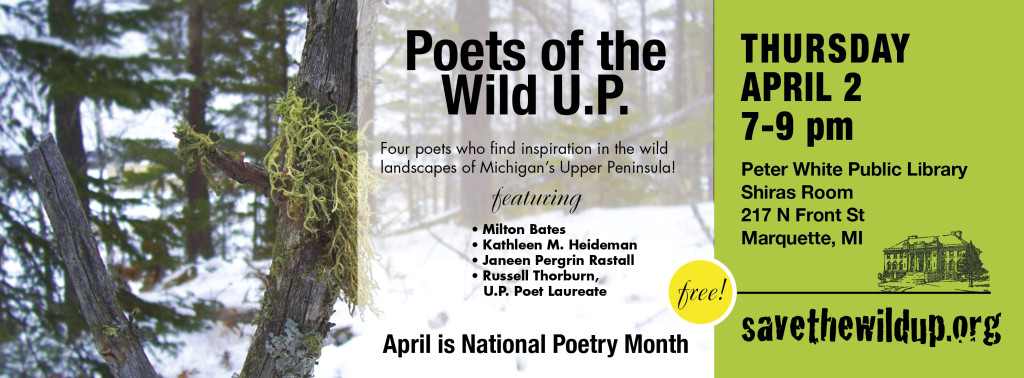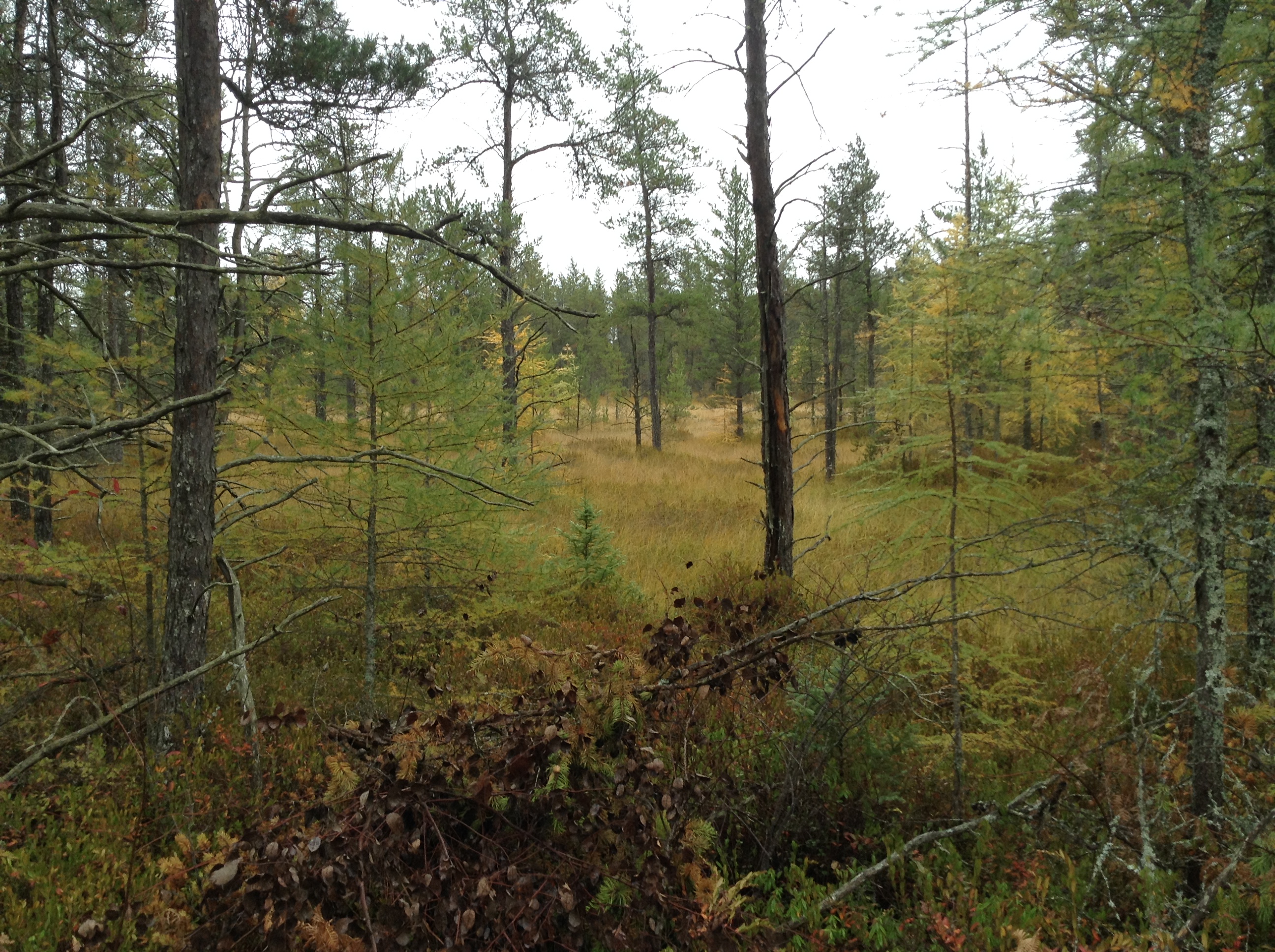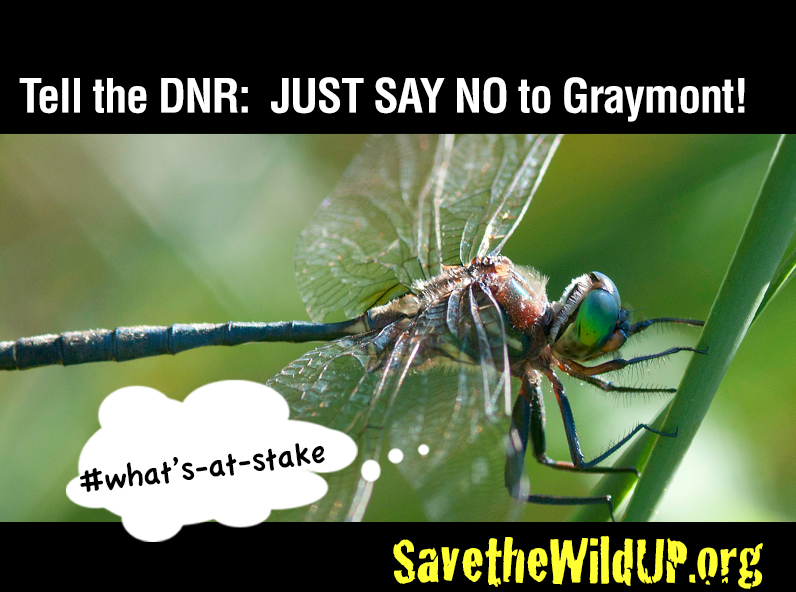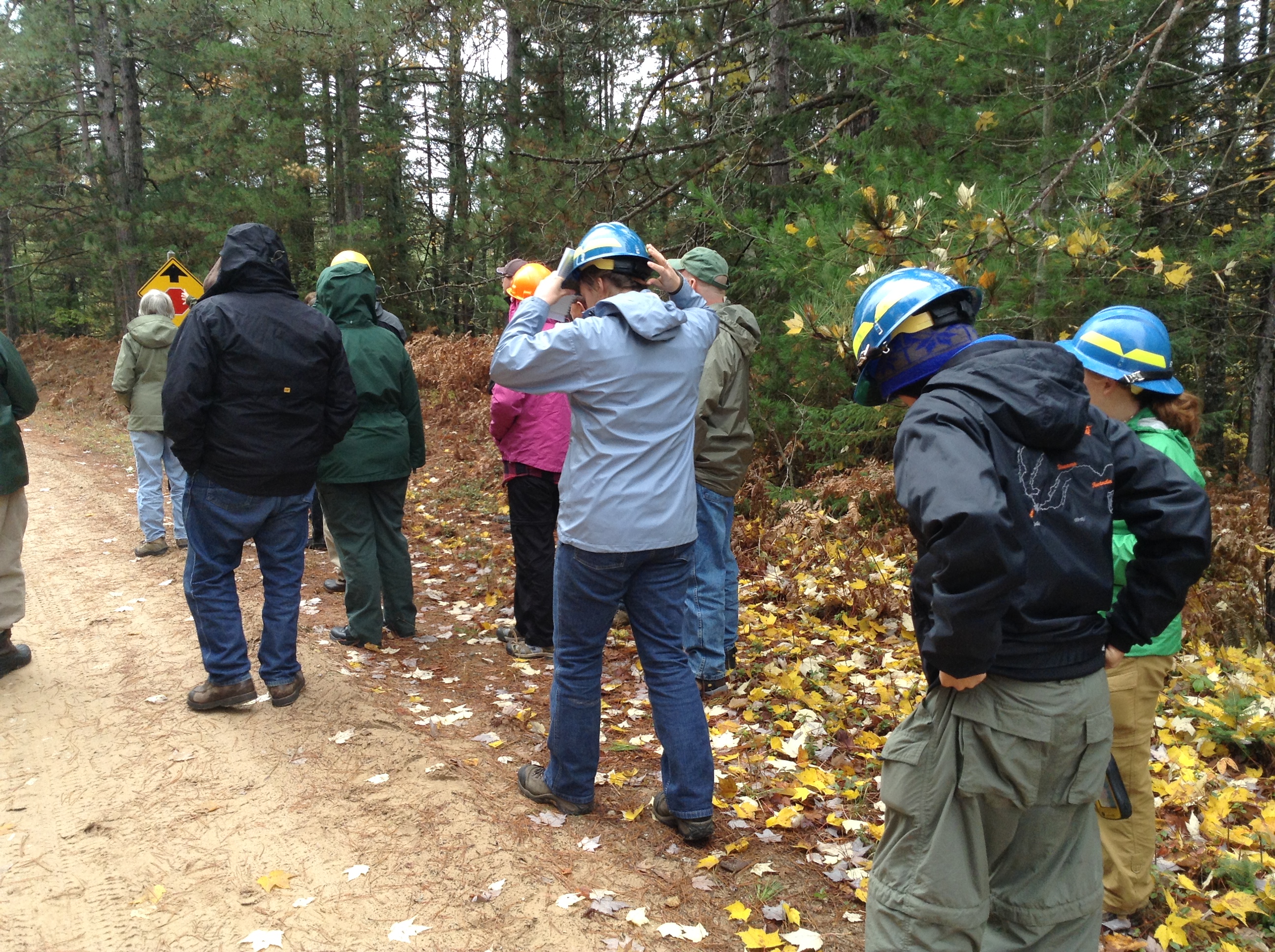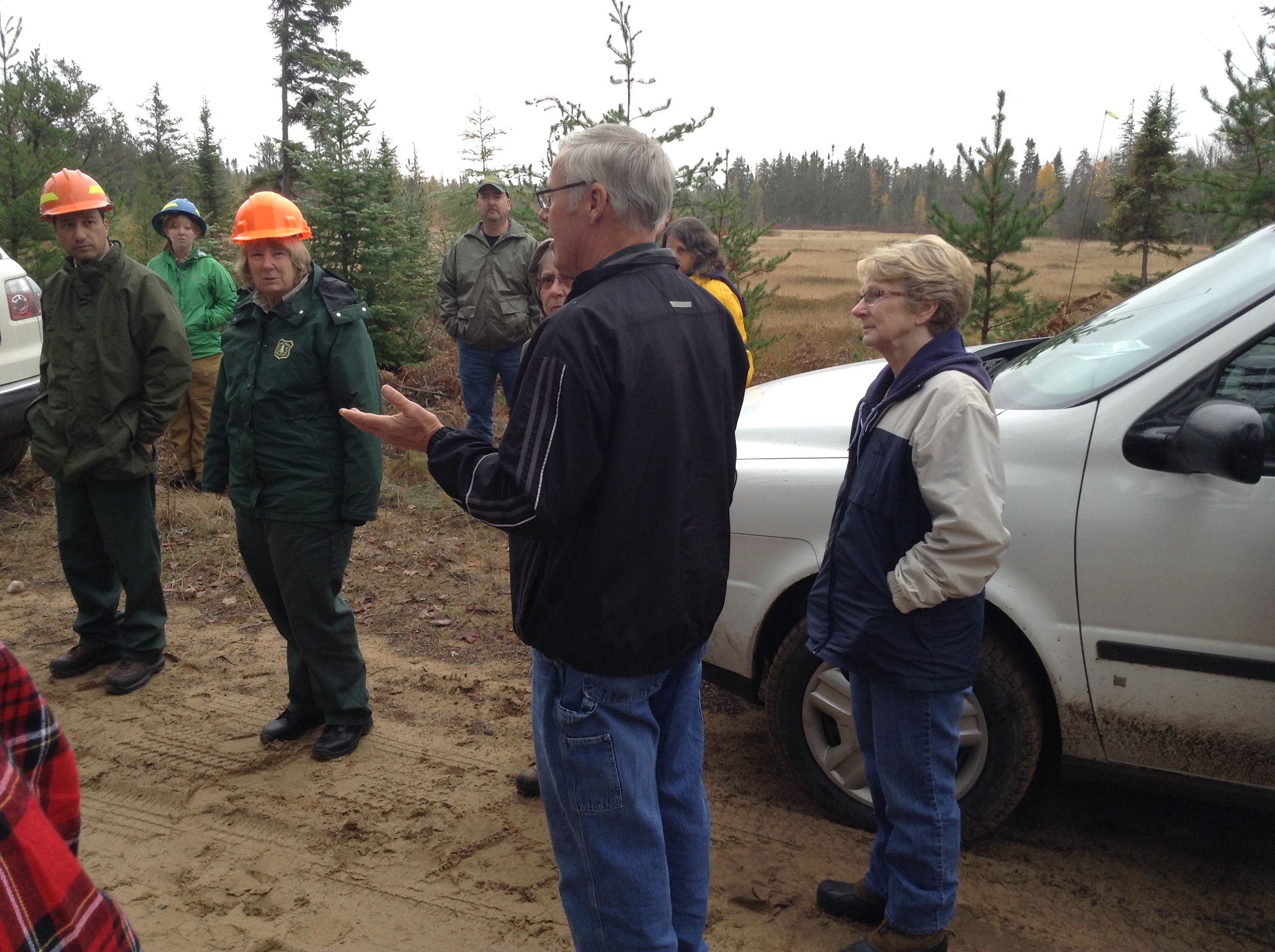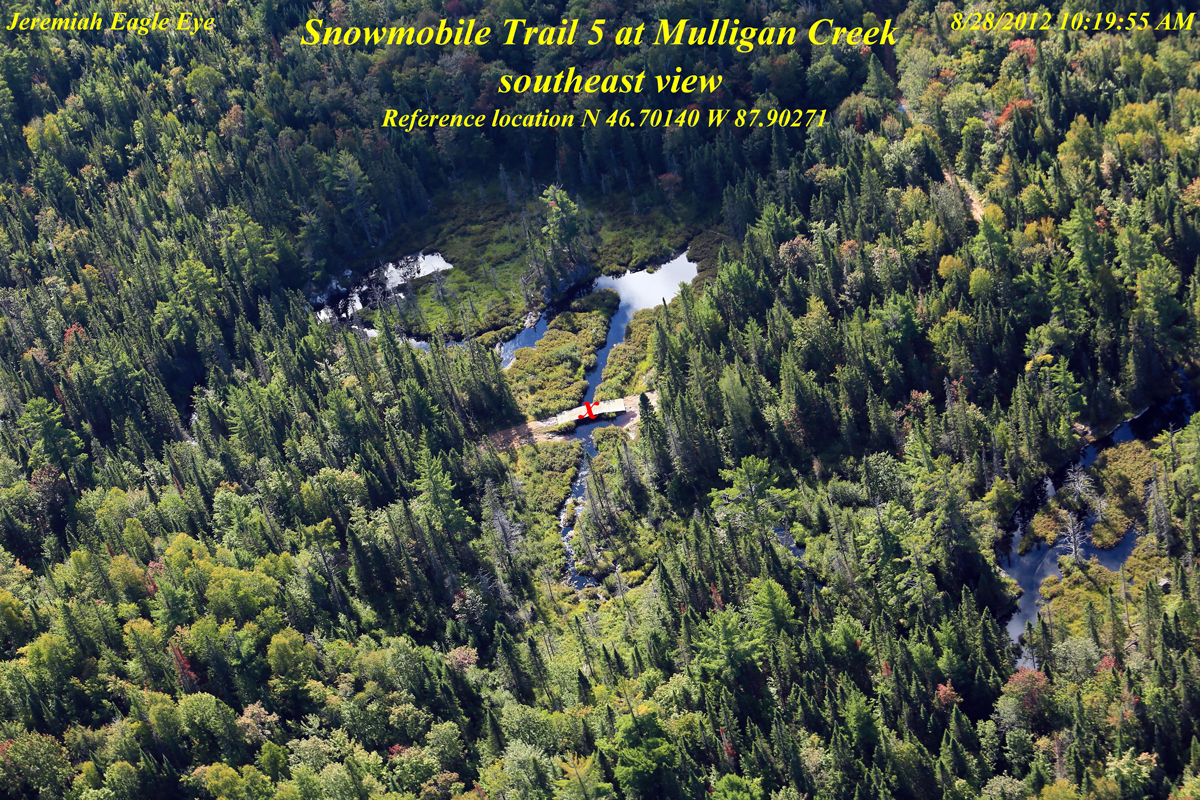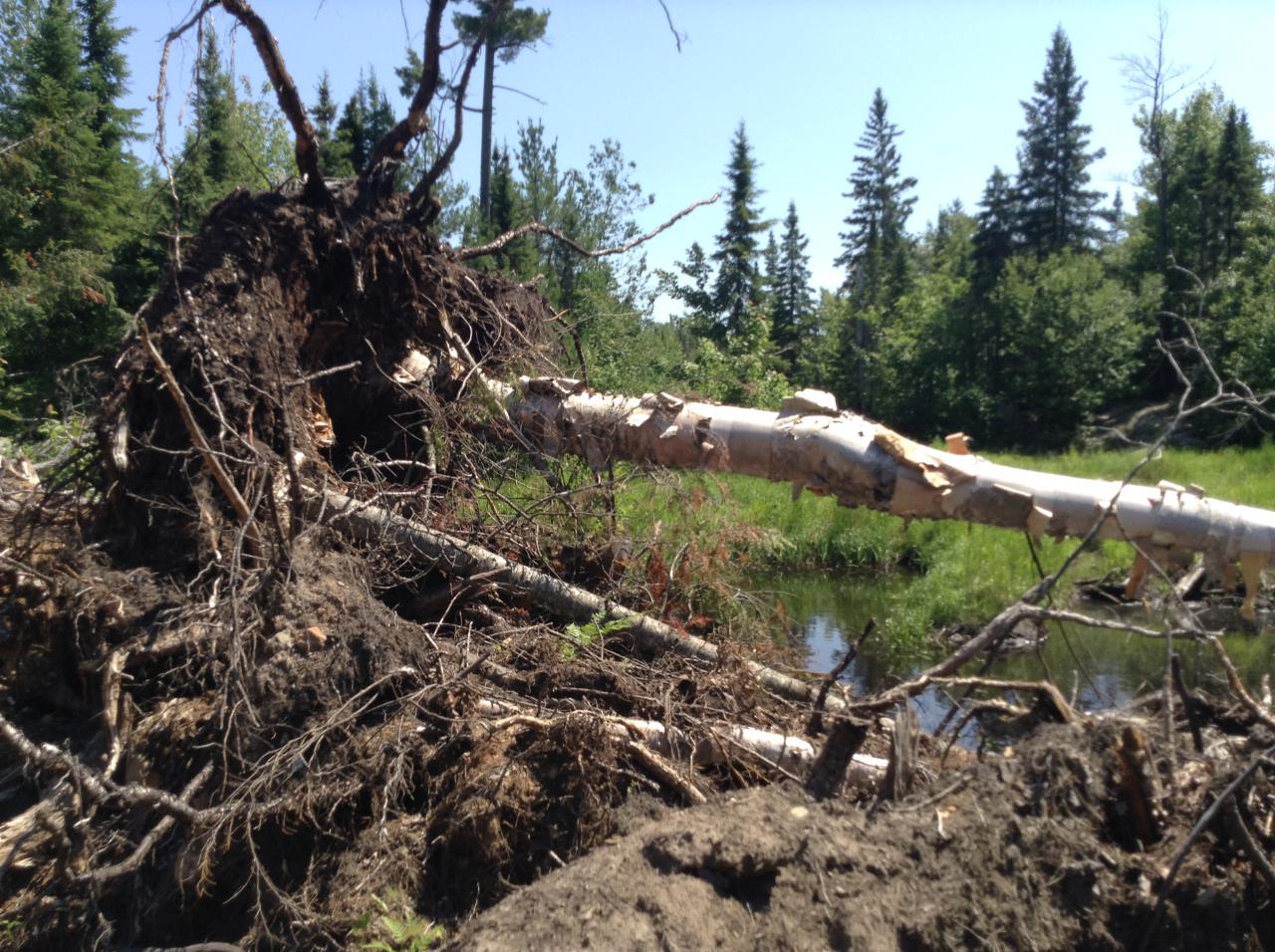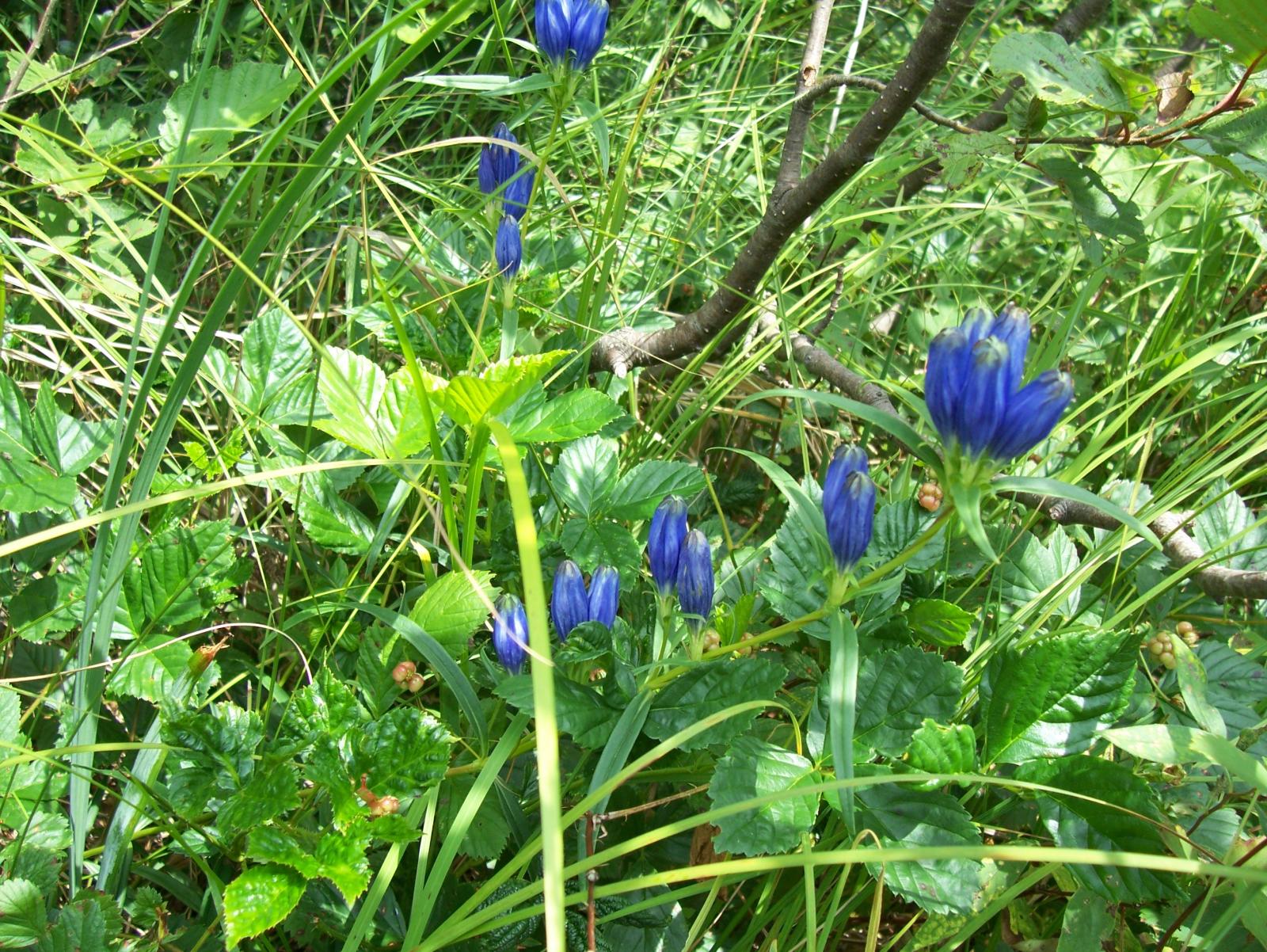FOR IMMEDIATE RELEASE
Save the Wild U.P. questions justifications as Road Commission sues EPA
MARQUETTE – Grassroots environmental group Save the Wild U.P. (SWUP) has serious objections to the narrative being created by politicians surrounding a lawsuit brought against the Environmental Protection Agency (EPA) by the Marquette County Road Commission (MCRC). In 2013, the EPA denied the Michigan Department of Environmental Quality (DEQ) authority to issue permits that would allow construction of the proposed CR 595, an industrial haul-road for Eagle Mine. This decision was based on the potential for great harm to existing wetlands and vital watersheds.
“The MCRC says their road project was not properly considered by the EPA, but nothing could be further from the truth. How many times will they try to push this idea down the public’s throat? Multiple federal agencies reviewed this project and outlined their objections. Those objections still stand. As concerned citizens, we outlined our objections too — nothing has changed. The 595 road remains a terrible idea for the environment, as well as taxpayers,” said Gail Griffith, emeritus professor of Chemistry at Northern Michigan University and SWUP board member.
“We’re talking about the wild heartland of Marquette County, a remote and ecologically sensitive area. When I traveled the entire proposed route in 2009, I saw hundreds of narrow-leaved gentian plants growing along the northern end,” said botanist and SWUP board member Steve Garske. He believes the EPA made the right decision. “This gentian is locally common around the Yellow Dog Plains but rare in Michigan — it occurs in only three counties in the state.” He also documented two populations of the rare Farwell’s water milfoil along the route.
The proposed road would have cut through the Dead River and Yellow Dog Watersheds, the Mulligan Creek headwaters, Voelker Creek, Wildcat Canyon and more. “I know the Wildcat Canyon area… it is a treasure of streams, rocky ledges and deep woods that would be destroyed if used as a corridor for a haul road,” said Lynn McGlothlin Emerick, a longtime Upper Peninsula resident.
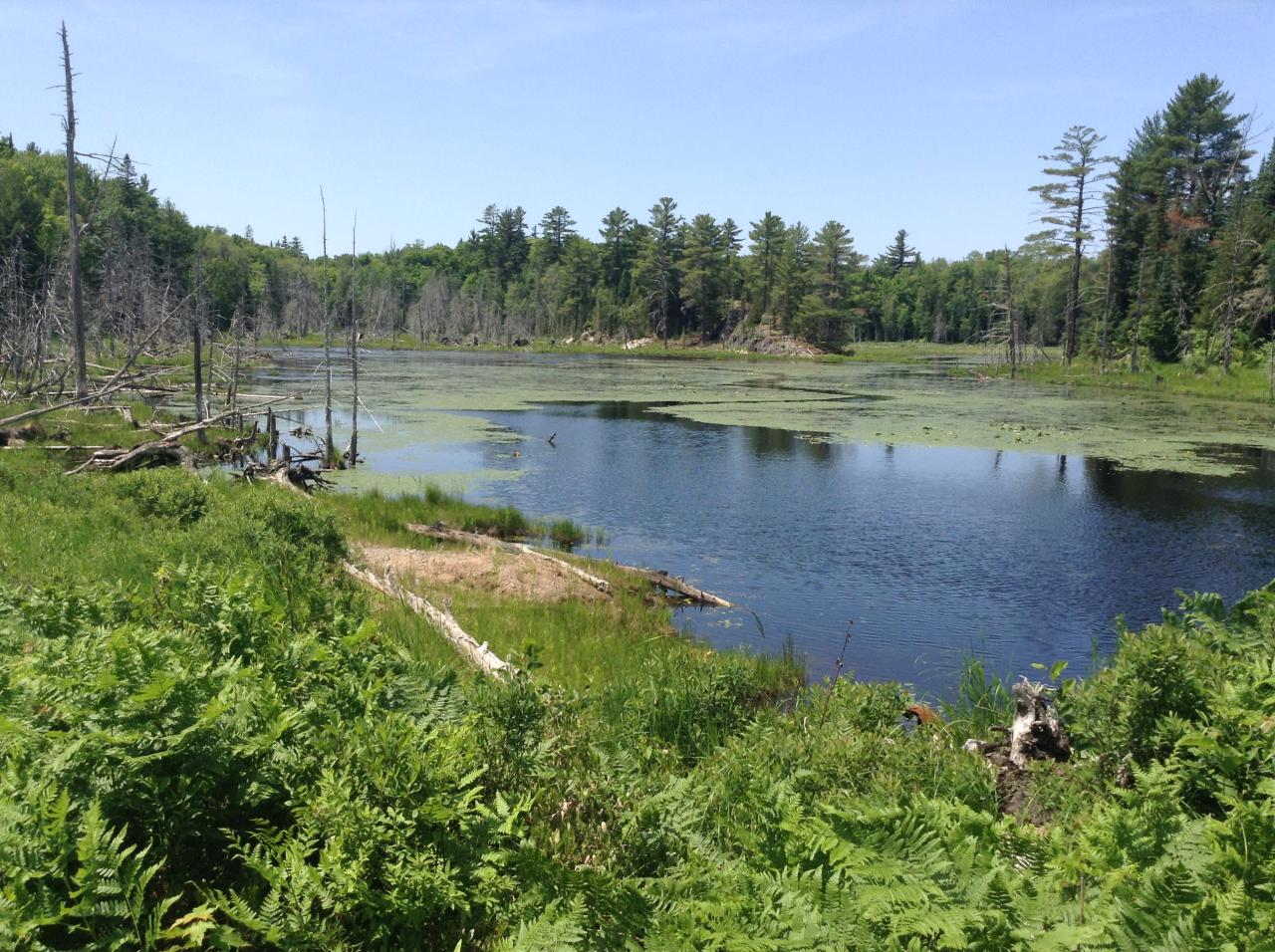
Wildcat Canyon Creek crossing, along the defeated CR 595 route.
“The EPA, The U.S. Army Corp. of Engineers (USACE), and the US Fish & Wildlife Service (USFWS) all objected to the construction of this road, as did residents and property owners in the area who want nothing to do with mine-traffic passing their isolated and serene camps,” said Alexandra Maxwell, SWUP interim director.
“595 would irreversibly impact high quality wetlands at the headwaters of several watersheds and foreseeably lead to additional roads that would open up one of Michigan’s last remaining wilderness areas to resource exploitation,” according to Jessica Koski, Assistant Mining Technician of the Keweenaw Bay Indian Community (KBIC). “Michigan’s economy depends on tourism dollars from hunting, fishing and outdoor recreation businesses enabled by wetlands. Yet, wetlands are on the frontlines of development and their preservation is vastly underappreciated. Michigan has already lost more than half of its original 11 million acres of wetlands due to filling and draining.”
In recent weeks, the Road Commission has been seeking resolutions from local townships, county boards, and U.P. politicians, to back up their claims of ‘overwhelming support’ for 595. Demonstrated support has actually been lukewarm, despite much political drum-beating. The Marquette County Board failed to support the MCRC’s lawsuit, and half of the county townships are opposed. Northern Michigan University’s Board of Trustees – dedicating five minutes to discussion of the agenda item – voted to offer a resolution of support for County Road 595, but it should be remembered that the Trustees are political appointees.
In response to doubts regarding the costs and possible repercussions of the lawsuit, a group was formed to fund the litigation and inspire public support: Stand U.P., a 501c4 organization described as a ‘local non-profit, non-political group’ created to allow citizens to contribute money to fund the lawsuit. Formed at the request of Senator Tom Casperson, Stand U.P. will be able to accept unlimited corporate funding without disclosure and in turn, can support, endorse, and communicate on behalf of candidates.
“It undermines democracy. This so-called nonprofit will be siphoning corporate dollars to manipulate a public agency — the Marquette County Road Commission — into doing the bidding of special interests,” said Alexandra Thebert, former executive director of Save the Wild U.P. “Special interests are trying to tell us this lawsuit is a David versus Goliath battle, but a quick look at abandoned downtowns across the U.P. and the piles of mining waste across our landscape reveals the true Goliath — multinational companies getting rich off our labor and resources while leaving taxpayers to foot the bill for environmental and economic destruction.”
“The people in the Upper Peninsula of Michigan aren’t stupid,” said Jeffery Loman, Keweenaw Bay Indian Community (KBIC) tribal member and former federal oil regulator. “They know what Stand U.P. is. It’s a comedy act.”
“Let’s be honest. The plan for 595 collapsed under the weight of its own inadequacies, and now there’s no mining money left on the table to pay for it. This is a zombie road,” said Kathleen Heideman, SWUP’s president. “This is a dead idea, dug up by politicians who want to frame the EPA as a ‘big bad federal agency’ that only cares about wetlands and clean water. Our elected officials are comparing the ‘freedom to burn wood to heat our homes’ with the ‘freedom to build roads.’ Freedom to build more roads? Our county doesn’t have enough money to fix potholes and rusty bridges and keep our existing roads plowed, so it’s outrageous to talk about funding another Road to Nowhere.”
Kennecott proponents first dreamed of a ‘South Road,’ a napkin-drawing which soon became the “Woodland Road,” backed by private developers, including Eagle Mine, who stood to gain financially from a new route into the wild interior of Marquette County. But when the Woodland Road was rejected by the EPA, USFWS and USACE, Kennecott withdrew their application in May of 2010, citing “environmental obstacles imposed by federal regulators coupled with the uncertain timelines and cost.”
The Marquette County Road Commission (MCRC) persisted, however, changing the name of the project to County Road 595, citing the public’s need for recreational and emergency vehicle access. In written comments objecting to the 595 proposal, the USACE stated “there are no references to the need for a north-south connector west of the Basin, in county planning documents or resolutions prior to 2010.” Clearly, this was still a haul road, dressed up as a county project.
“The Road Commission’s lawsuit against the EPA is being pushed by a consortium of private interests — logging, aggregate and real estate — that would benefit financially from County Road 595 being built,” according to Catherine Parker. “The suit is also about egos and the mistaken view that incremental ‘development’ does not equate with ultimate destruction.”
“Having sifted through years’ worth of letters, reports, and communications between various regulators, I can say with certainty that this project is far worse than most people realize. The Army Corps of Engineers, US Fish and Wildlife Service, Michigan DEQ and Michigan DNR, along with the EPA, all had serious concerns that could not be resolved. Field staff in our state agencies did not support construction of 595 — only the political appointees at the top did so,” said Catherine Parker. “Let them sue. Perhaps EPA will revoke the state’s somewhat dubious wetlands permitting authority as a result.”
“The lawsuit being brought against the EPA by the MCRC is shocking and feels more like a child’s tantrum than anything that has legitimate standing in a court of law,” said Alexandra Maxwell, SWUP’s interim director. “The EPA’s objections to the construction of this road were valid and protective of one of the region’s most important headwaters .”
Save the Wild U.P. demands full disclosure and transparency concerning the recent decisions of the Marquette County Road Commission, which is attempting to circumvent federal regulations — and the will of the people. Private interests are trying undermine hard-won environmental protections for clean water and wetlands — federal regulations intended to protect our drinking water and our trout streams. Save the Wild U.P. urges citizens to fully consider the long-term implications of the CR 595 proposal, and question the motivations of any elected officials who support this lawsuit against the Environmental Protection Agency.
Save the Wild U.P. was formed in 2004 to protect the U.P.’s unique communities, lakes, and lands from the hazards of sulfide mining, which threatens to contaminate the Lake Superior Watershed with acid mine drainage.
###
TIMELINE – COVERAGE OF THE COUNTY ROAD 595 ISSUE
4-22-10 “Mine Opponents Comment on Woodland Road Plan” (Save the Wild U.P.)
http://savethewildup.org/2010/04/mine-opponents-comment-on-woodland-road-plan/
1-18-11 “Kennecott Abandons Woodland Road” (ABC-10)
http://abc10up.com/kennecott-abandons-woodland-road/
8-29-12 “Strong Public Opposition to CR 595 at Hearing” (Yellow Dog Watershed Preserve)
http://www.yellowdogwatershed.org/blog/strong-public-opposition-to-cr-595-at-hearing/
8-30-12 “EPA notes CR 595 objections: wetlands impact central to federal concerns” (The Mining Journal)
http://www.miningjournal.net/page/content.detail/id/579258/EPA-notes-CR-595-objections.html
9-11-12 “Reps push EPA on CR 595” (The Mining Journal)
http://www.miningjournal.net/page/content.detail/id/581667.html
12-5-12 “EPA drops one objection to CR 595 proposal” (TV6)
http://www.uppermichiganssource.com/news/story.aspx?id=833953
12-6-12 “EPA Partially Removes Objection to CR 595” (Lake Superior Community Partnership)
http://marquette.org/epa-partially-removes-objection-to-cr-595/
1-7-13 “County Road 595 Kicked to the Curb” (Yellow Dog Watershed Preserve)
http://www.yellowdogwatershed.org/blog/county-road-595-kicked-to-the-curb/
3-17-13 “D.C. hearing to address CR 595 roadblocks” (The Mining Journal)
http://www.miningjournal.net/page/content.detail/id/585411.html
3-1-14 “Specter of CR 595: Will the Zombie Rise Again?” (Jon Saari, UPEC Newsletter)
http://www.upenvironment.org/newsletters/UPEC_2014_SpringNewsletter.pdf
7-8-14 “CR 595 – Under Construction?” (Save the Wild U.P.)
http://savethewildup.org/2014/07/cr-595-under-construction/
8-1-14 “DEQ investigating road work: Environmental groups concerned…” (The Mining Journal)
http://www.miningjournal.net/page/content.detail/id/602472/DEQ-investigating-Plum-Creek-road-work.html
12-26-14 “State lawmakers discuss future of County Road 595” (TV6)
http://www.uppermichiganssource.com/news/story.aspx?id=1141395
12-29-14 “County not suing EPA over 595, reps say they’d back litigation…” (The Mining Journal)
http://www.miningjournal.net/page/content.detail/id/611220/County-not-suing-EPA-over-595.html
1-22-15 “Road Commission prepares for lawsuit against E.P.A.” (TV6)
http://www.uppermichiganssource.com/news/story.aspx?list=194550&id=1153222
1-28-15 “Marquette County Board, residents, environmental groups oppose Road Commission vote to sue EPA over CR 595; lawsuit funding sources undisclosed” (Keweenaw Now)
http://keweenawnow.blogspot.com/2015/01/marquette-county-board-residents.html
2-4-15 “(Ishpeming) Council to consider supporting CR 595” (The Mining Journal)
http://www.miningjournal.net/page/content.detail/id/613351/Council-to-consider-supporting-CR-595.html
2-4-15 “Michigan lawmakers sponsor resolutions supporting County Road 595” (TV6)
http://www.uppermichiganssource.com/news/story.aspx?id=1159366
2-6-15 “Boards and townships still split CR-595 while elected reps support EPA lawsuit” (TV6)
http://www.uppermichiganssource.com/news/story.aspx?id=1141395
2-9-15 “Environmentalists call lawsuit against EPA ‘child’s tantrum’” (ABC-10)
http://abc10up.com/environmentalists-call-lawsuit-against-epa-childs-tantrum/
2-11-15 “County Road 595 suit, project gaining favor” (The Mining Journal)
http://www.miningjournal.net/page/content.detail/id/613735/County-Road-595-suit–project–gaining-favor.html
2-3-15 “Stand U.P. group raising funds for County Road 595 lawsuit” (The Mining Journal)
http://www.miningjournal.net/page/content.detail/id/613283/Stand-U-P–group-raising-funds-for-County-Road-595-lawsuit.html

